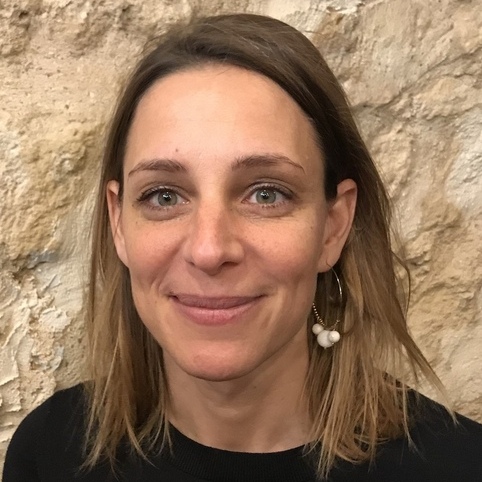
Senior Program Manager at the International Coalition of Sites of Conscience (ICSC), a worldwide network of 350+ Sites of Conscience – historic sites, museums and memory initiatives connecting past struggles to today’s movements for human rights and social justice – in 70 countries. She oversees the ICSC’s activities in Europe/Eastern Europe and West Asia and North Africa (WANA) and works with members and their communities to activate heritage to promote human rights, build inclusive historical narratives and foster dialogue. She has worked with ICSC global members to develop the Correcting the Record methodology, which equips museums and heritage sites with the skills, and tools to amplify marginalized voices and promote more inclusive and equitable public narratives by changing their organization’s practices and approaches. Before joining ICSC, Justine has been working for 10 years on transitional justice initiatives in Lebanon, Syria and more broadly in WANA. As the founder and director of the Lebanese organization Act for the Disappeared, she worked with families of the disappeared and their communities to promote truth, justice and foster peacebuilding. She has developed intergenerational and intercommunity oral history projects, documentation efforts into the fate of the missing and psychosocial programs for victims including memory initiatives.
Worldwide, museums, heritage sites and cultural institutions are called to renegotiate their role in society. As bearers of societies’ history and vectors of social transformation, they are best placed to address past wrongdoings, counter historical narratives that perpetuate exclusion and discrimination, and build new inclusive narratives that empower citizens, foster shared understanding and contribute to rebuilding the social fabric. Addressing historical silences starts by changing museums and cultural institutions from within. Addressing these silences requires a profound institutional transformation that dismantles entrenched biases and inequities. Change should be seen as an ongoing, intentional process that involves questioning existing norms, reassessing practices, and engaging in deep reflection on the role of museums in society. As part of the ICSC's long trajectory supporting museums, heritage sites and memory initiatives around the world to expand their social role, in 2023 ICSC launched the “Correcting the Record” methodology. This methodology helps museums, heritage sites and memory initiatives identify gaps in terms of representation and engagement of their communities internally as well in their repository, programming and collection and fill those gaps.